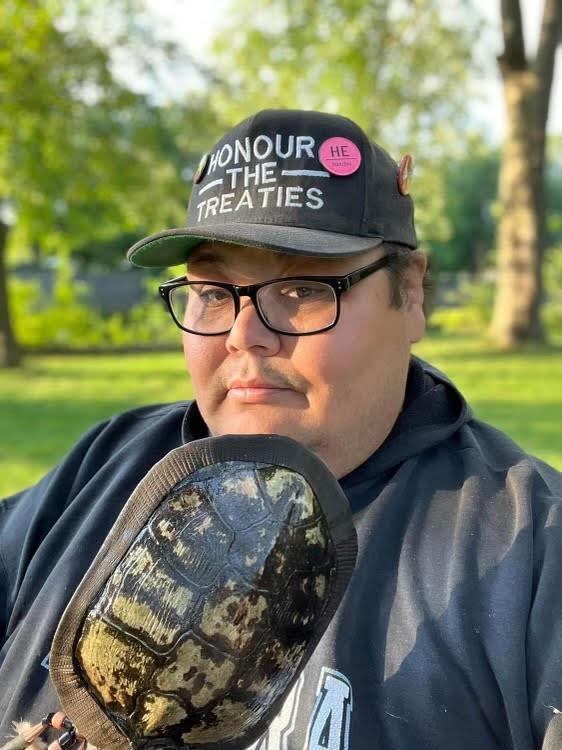GUELPH – Power and wisdom will be showcased at an Indigenous-focused poetry event here on June 17, with “something unique to be gained for those who are willing to listen,” said poet Mike O’dah Ziibing Ashkewe.
Poets will share “incredible stories of love, trauma, triumph and power,” he added.
Ashkewe is a reporter and community advocate in Guelph, and one of the poets performing.
He said writing and performing poetry is a powerful way for him to honour his “Indigenous creative blood.”
People in Wellington County should “absolutely” head to Guelph for the poetry slam, Ashkewe said, because the opportunity to hear from the local Indigenous community is “such a unique experience.
“As we start to move the needle towards truth and reconciliation, part of that is listening to Indigenous voices,” he said.
“There’s a lot of rich history here that I don’t think a lot of people are knowledgeable about. We are more than just the Indigenous Gathering Circle in Fergus and the Sacred Fire in Royal City Park in Guelph.”
The poetry slam is co-organized by Guelph Spoken Word and the Indigenous Poets Society, a group of writers who meet online to share “inspiring stories, thoughts, and creative passion,” Ashkewe said.
Guelph Spoken Word is a non-profit organization that hosts poetry slams, open mic events, writer’s circles, and workshops.
Guelph Poetry Slams happen on the third Saturday of every month and “invite poetry of all levels and abilities,” Ashkewe said.
Poetry slams are lively events where sounds like finger snapping, cheers, hisses, moans, and call-and-response phrases ring out from the crowd while participants compete for points.
Each slam includes a performance from a feature poet too, and this month is different because there will be three features, all Indigenous: Kevin Wesaquate, Hope Engel and Ashkewe.
Original poetry is performed and people watching are encouraged to call out words of encouragement and support.
In Guelph, the poet with the highest score walks away with a $100 prize.
Each Guelph Poetry Slam begins with an open mic performance where people can share their poetry without the pressure of competing in the slam.
But Ashkewe highly recommends joining the competition – “it’s always worth it to creatively spar, but also challenge yourself to do something new and exciting.”
All poets are invited to participate in the slam and open mic – they do not need to be Indigenous or have experience performing.
For Ashkewe, it has been “such an rewarding experience to be part of this artistic community” at poetry slams.
Guelph Spoken Word “encourages me so much in my creative journey,” he said.
“I owe so much to Beth Anne and Truth Is for giving me a voice.”
Beth Anne Ellipsis is the founder of Guelph Spoken Word and Truth Is volunteers with the organization, sometimes hosting Guelph Poetry Slams.
Ashkewe said Guelph Spoken Word was instrumental in “helping me discover who and what I was at my core.”
Much of Ashkewe’s poetry draws from his experiences as a Sixties Scoop survivor.
Sixties Scoop refers to the removal of tens of thousands of Indigenous children from their families and into the Canadian child welfare system.
Ashkewe said he may share his poem about how “despite everything that has happened to us we are still here – we resisted attempted genocide.”
His goal is to “empower the Indigenous voices in the audience” while showing non-Indigenous people the “power and strength in our work.”
Ashkewe said he is going to be writing some new poems this month.
His inspiration will draw from his mother, who is Ojibway from Chippewas of Nawash First Nation, from receiving his spirit name and spirit animal, and from land defenders like those at 1492 Land Back Lane on Six Nations of the Grand River and in Wet’suwet’en, B.C.
The poetry slam is at Silence, at 46 Essex St,. from 8 to 11pm. The cost to attend is $15, but free for anyone performing during the open mic or slam competition.
There are a limited number of free and reduced priced tickets – to request one, email bethanne@guelphspokenword.com.




